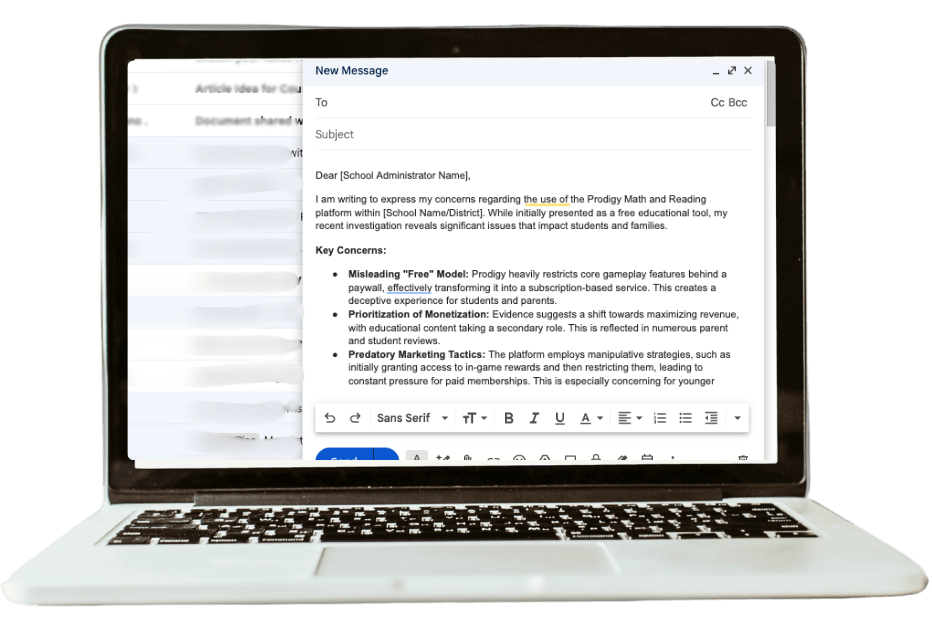Social media has morphed into a popular parenting tool and provides an abundance of support for parents in all stages. When scrolling through posts, you can learn helpful tips about feeding and sleeping babies, planning sensory play, or behavior management strategies for teens.
Like any form of media, however, social media also comes with negative effects. Time interacting with technology can interfere with essential moments of connection and learning with our kids. This is so prevalent that the term “technoference” has been coined to describe interruptions in everyday interactions with children or family members due to technology. Phone use while parenting can distract from safety or emotional needs and model unhealthy tech habits for children.
Being consistently on Social media can also lead to unhealthy expectations and comparisons that leave parents feeling inadequate or unsatisfied, and can even lead to mental health consequences.
So, how do we know if we’re using social media to our advantage, or if it’s getting the best of us?
Here are 5 questions to help parents assess the health of their social media use.
1. Do I find myself scrolling social media more than 3 times daily while around my kids.
How often our gaze is on our children vs. on our phones matters to their development. Tasks like checking emails or responding to playdate invites might not be optional, but social media scrolling is. It may serve to alleviate some boredom or provide an escape, but doing it more than a handful of times in a day can indicate it’s stealing too much of your time or attention.
2. Is this account I follow helpful to my parenting, or am I simply fascinated or entertained by their life?
The line between “information seeking” and scrolling is thin. We think we are following someone because they provide great activities that we like to reference on home days with the kids. Then, that same account posts 5-10 times about products, family life, or personal anecdotes, and we’re suddenly fascinated but no longer learning. Assessing whether we pay attention to them for learning or entertainment can help us weed out the negative influences.
3. Am I consistently spending money on things I see on social media?
Many influencers we follow are running businesses. The same way that a car salesman’s income depends on us signing on the dotted line, their income depends on us clicking “order”. We all carry an appropriate level of caution with sales people in person. We wonder if we’re getting the best deal. We take our business elsewhere if they follow us around too much or pressure us too hard. We think deeply about whether their intentions are good.
Do you approach influencers the same way? We see joy, we see problems solved, we see kids playing on their own, and we hit the button. The price points are lower, so it feels less consequential than buying a car. Over time, the money we spend adds up, and finances can become a significant stressor in life and in marriages.
In my parenting journey, I found myself purchasing things to solve problems I didn’t actually have yet. It felt like such a great product or idea that it would provide so much value. In reality, I wasn’t any worse off in my parenting without it. I decided it was better to “unfollow” all the parenting accounts I once followed, so I don’t see every post. When I decide I want to buy my child a certain toy for their birthday, or that my lunch boxes desperately need an upgrade, I go to their websites and blogs and search for their recommendations. I trust their opinions and the work they do to find things that support parents. However, minimizing exposure to their content helps me remember I don’t need something until I actually need it.
4. When I see this account’s posts, do I feel encouraged in my parenting, or discouraged by the comparisons I make between my life and theirs?
Research on social media and mental health is plentiful, and consistently shows connections between mental health struggles and higher social media use. Studies like this one show strong links between higher social media use and lower self-esteem, particularly related to social comparisons. If you are going to social media to feel empowered as a parent, and walking away feeling envious or inadequate, then the negatives may be overpowering the positives.
5. Are my time or resources going into something for the underlying purpose of being able to share it later on social media?
Your parenting may be impacted negatively by Social media if your motivation for DOING is for SHARING.
Social media has a way of making complicated, expensive, or elaborate things feel accessible and necessary. Sometimes we think we can recreate something we see, and in reality, it brings more stress than reward. More importantly, look at your motivation for trying.
Is the decision for the balloon arch for my daughter’s party because it will bring her joy or is it the perception of others I am worried about? What do I believe dictates a “good” party for her? What does she actually value in a celebration? Is it attention or praise I am seeking when I post pictures of the party to Instagram later?
What to Do Next
While taking a social media fast may feel too extreme to many parents, here are a few ideas to help scale it back. Strategies like these can help to minimize the negative effects and optimize use.
Finding ways to integrate social media into our parenting and routines without allowing it to negatively affect our parenting is hard, but it is essential to ensuring we set positive examples for our kids and protect our own emotions and relationships.
If you found this article helpful, be sure to comment and let us know. As always, thank you for reading!

Authored by: Courtney G. DiStefano, CCLS
Courtney G. DiStefano is a Certified Child Life Specialist, child development expert, and mom of three with nearly fifteen years of clinical experience serving children and families in hospitals and social-service settings.




